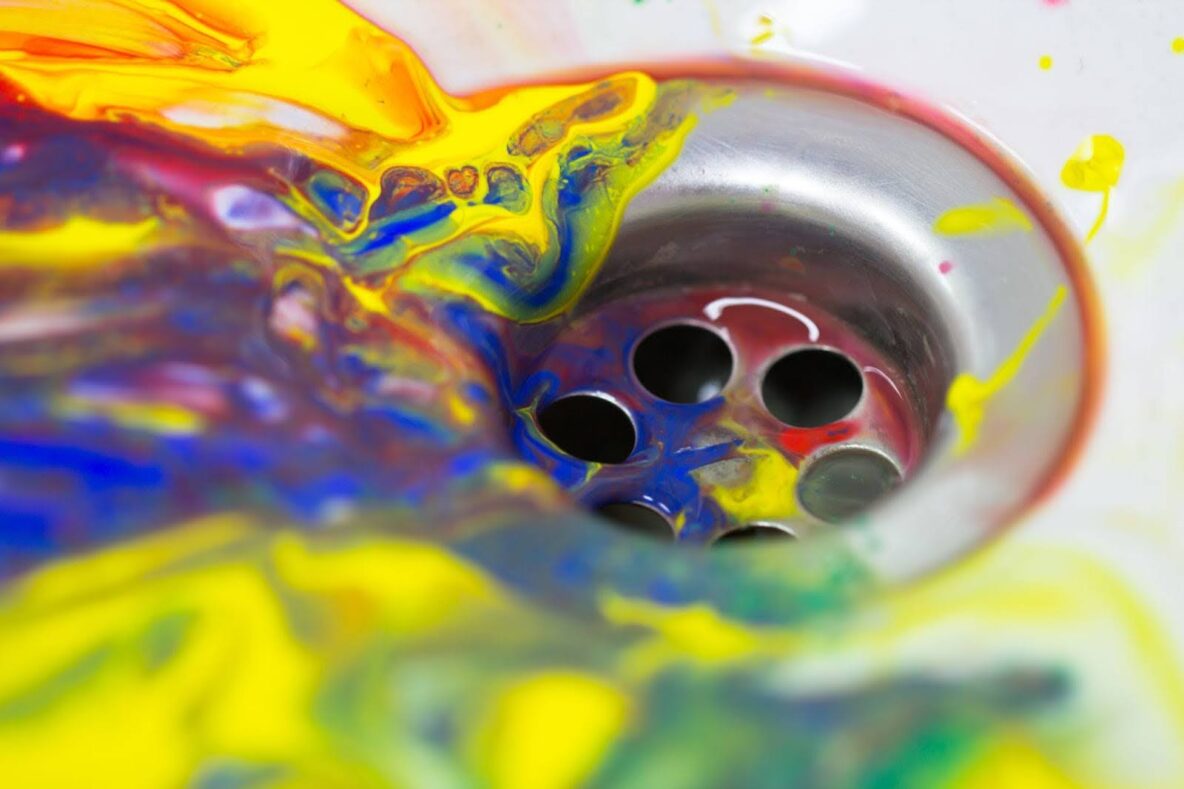The best way to deal with a nasty, smelly, unsightly drain clog is to avoid it entirely. To do that, it’s important to know what should and shouldn’t be allowed into your drains. Saffer Plumbing, Heating & Electrical has many years of experience helping our customers maintain their home’s plumbing system and keeping their drains flowing smoothly.
With our expertise in drain and plumbing repair, we’ve cleared all sorts of clogs and aim to educate our community on what can and cannot be disposed of through sinks and toilets, helping you prevent plumbing blockages and avoid unnecessary plumbing repairs. Here is a list of some of the things that are and are not safe to allow into your drains.
Kitchen Sink Dos and Don’ts
What to Avoid:
- Food Scraps: Even with a garbage disposal, certain food scraps should never go down your kitchen sink. Avoid disposing of grease, oils, and fats as they solidify in pipes, leading to clogs.
- Coffee Grounds: Coffee grounds are a common cause of sink drain blockages as they accumulate and do not break down easily.
- Starchy Foods: Foods like pasta and rice expand when exposed to water, which can lead to clogged drains.
- Paper Towels: Paper towels should not be put into a kitchen drain because they are designed to be absorbent and do not break down easily in water. This can lead to significant blockages in the plumbing system as they accumulate and swell.
- Paint: Paint should never be poured down a kitchen drain as it contains chemicals that can be harmful to the plumbing system and the environment. Additionally, as paint dries, it can harden within the pipes, restricting water flow and potentially leading to costly repairs. Finally, disposing of paint improperly can contaminate water supplies and harm aquatic life.
Safe Practices:
- Drain Water-Soluble Liquids: Liquids that dissolve easily in water, such as juices, broths, and vinegar, along with soft foods that break down quickly, like small food residues after dishwashing, can be safely flushed down a kitchen sink. These substances are unlikely to cause blockages as they do not solidify or accumulate within the plumbing.
- Confidently Use Liquid Dish Soap: Liquid dish soap is safe to put down the kitchen sink drain, as it is specifically formulated to effectively break down grease and food residues without causing clogs or damaging pipes.
- Use a Drain Strainer: Capture food scraps and other debris effectively with a drain strainer, reducing the risk of clogs.
- Invest in Regular Drain Cleaning: Flushing your sink with hot water weekly can help dissolve and flush away minor accumulations.
Bathroom Sink and Shower Tips
What to Avoid:
- Hair and Soap Scum: Hair and soap scum are notorious for clogging drains, particularly in bathrooms. Hair can entangle itself around the drain’s parts, trapping other debris, while soap scum, made from fatty acids and minerals in water, builds up over time, creating a sticky residue that narrows the pipes.
- Chemical Drain Cleaners: While tempting, these can corrode your pipes over time. Instead, opt for natural alternatives like baking soda and vinegar for minor clogs.
Safe Practices:
- Regular Maintenance: Regularly cleaning your drains with drain cleaning services from professionals can keep them free of obstructions.
- Install Drain Screens: Prevent hair and soap scum from causing blockages by using a simple drain screen.
Toilet Clog Prevention
What to Avoid:
- Non-Flushable Items: Only human waste and toilet paper should be flushed. Items like wipes, even those labeled “flushable,” feminine hygiene products, and dental floss can create significant blockages.
- Excessive Toilet Paper: Be mindful of the amount of toilet paper used; excessive amounts can lead to clogs, especially in older plumbing systems.
Safe Practices:
- Educate Your Household: Make sure everyone in your home knows what can and cannot be flushed.
- Book Regular Check-Ups: Schedule regular check-ups with professionals to inspect your toilet’s plumbing and ensure it’s in good working order.
When to Call a Professional
While preventative measures can significantly reduce the risk of clogs, some blockages are too tough for DIY methods and require professional intervention. Our team at Saffer Plumbing, Heating & Electrical is skilled in handling more severe clogs using professional tools, which are more effective and safer for your pipes than store-bought solutions.
When to Reach Out:
- Persistent Clogs: If your efforts don’t clear the blockage, it’s time to call in the experts.
- Frequent Back-Ups: Frequent issues might indicate a deeper problem within your plumbing system, possibly in your underground sewer lines.
Keep Your Drains Clear With Saffer
Saffer Plumbing, Heating & Electrical is committed to providing our clients with the knowledge and services necessary to maintain a healthy, clog-free plumbing system. If you need advice, regular maintenance, repairs, or gas line services, our team is here to help.
Keep your drains in top shape and contact us today for all your plumbing and heating solutions. Let’s ensure your plumbing is always ready to handle everything your daily life throws its way.

